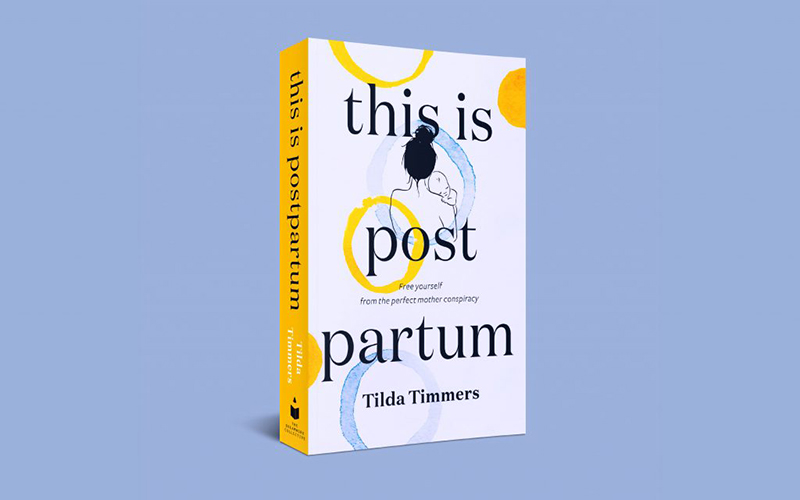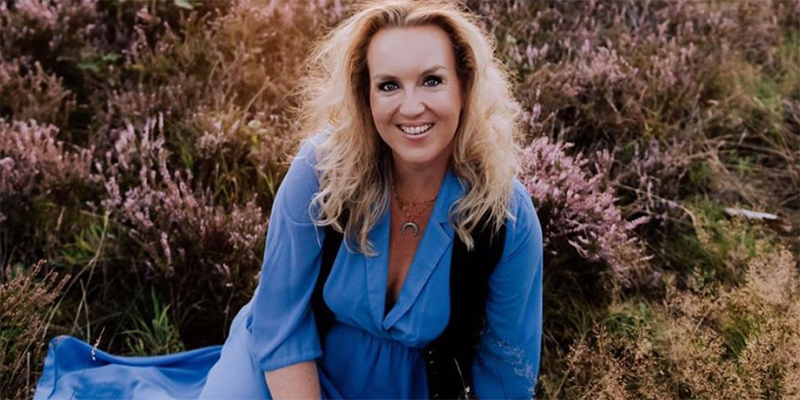All first-time parents (every parent for that matter) go through a newborn fog. Some take in their stride while others struggle, but everyone faces moments of uncertainty and anxiety. Throw COVID-19 into the mix and no wonder many struggle with a change in the family dynamic and start questioning their competence as parents.
This Is Post Partum by Tilda Timmers is described as a “friendly, fuss-free and compassionate guide for the moments when you’re tearing your hair out and wondering if you’re all alone”. Netherlands-based Timmers is a therapist specialising in postpartum depression. Through her work she strives to give parents their life back by introducing them to tools they need to feel more confident, happier and above all balanced in their new role as a parent.
Having suffered postnatal depression herself, Timmers knows what a challenging and dark place that could be and wants to support others through one of the biggest changes that life can throw at you.
Below, we ask her to share some words of wisdom to empower parents to push through the difficulties, forget perfection and embrace at just being a good enough parent.

Why do you feel women put so much pressure on themselves to be perfect mothers?
I think most mothers look around them and compare themselves to their friends and family and what they see on social media. If you constantly compare yourself to others, you subconsciously set the bar very high for yourself, especially when you look at all of the “instal perfect mums” online. It’s hard not to feel pressure when you see other mothers with their Pinterest-worthy houses, fitting into their skinny jeans six weeks postpartum, or those who seemingly have it all together. We have to remember that we are never really seeing see the full picture when we’re witnessing another motherhood journey.
Do you feel there is enough open conversation about the hardships of parenting?
No. There is room for improvement. Parents need more support after birth than most people realise and this is not spoken about enough. Because it’s not spoken about, many new parents aren’t fully aware of the hardships and how to cope with them. This makes it difficult for parents to seek out the support they need. We need to normalise these conversations and they need to be happening at a community, medical and governmental level. This year, in particular, due to the pandemic, new parents have struggled to receive the support they need.
What are your best tips for new mums who are struggling with anxiety?
The first step is to talk about your thoughts and feelings. Many mums go through the same; talk to them or your partner, so you’re not having to carry it all on your own. When you talk about it with a friend, a family member, or a colleague, you will hear a lot of other stories as well. It is also very important that you accept your thoughts and emotions. Know that they will pass and that you will feel better again. When you stop fighting it and start accepting it you will come up for air.
How can we learn to be happy with being just a “good enough” mother rather than the “perfect” mother?
There is no way to be a perfect mother but a million ways to be a good mother. If we lower the bar for ourselves and realize that good is good enough, it will get better. Aiming for perfection mostly results in disappointment. When you lower the bar and tell yourself, “I will try again tomorrow” you show yourself compassion. And that’s exactly what you need as a mum to thrive. Looking at yourself with grace and love is what helps mothers let go of perfection.
How can we equip our mental health before the baby arrives?
I recommend finding a therapist, life coach or doula. You need to feel that there are people in your corner dedicated solely to supporting your wellbeing and your identity and focus starts to be directed towards the wellbeing of your baby. If you start talking about what you’re going through from the beginning and seek out the advice of others around you, you will equip your mental health and feel more confident about the birth and all that comes after it.
View this post on Instagram
What has been your personal experience with motherhood?
My first experience with motherhood was rocky. I lost my dear grandmother when I was twenty-two weeks pregnant. I had a traumatic birth and after that, I spiralled straight into postpartum depression. I didn’t know what was happening to me. When I started to get professional help, I felt better and learned that I am a great mother. After my second baby, I had a lot more confidence and felt more grounded. The truth is, being a therapist doesn’t make me a perfect mother. I have struggled just as much as other mothers.
Why did you feel the need to write this book?
I felt like there was such a taboo around the topic of postpartum depression. There is the ‘bad mother’ stigma all mothers fear they will be labelled with if they express their true feelings and struggles. I believe the lack of conversation happening about this time in the journey is what is hurting families and preventing people from knowing when they need help and asking for it. However, my book isn’t just about postpartum depression, it is about finding yourself again after becoming a mother. After the baby is born everything becomes about the baby, so my book helps mothers remember that their needs are important too. I write about the journey all new mothers take after giving birth covering topics like how to keep your relationship happy and self-love.
What do you hope mothers will take away from reading this book?
I hope mothers will find their confidence again after reading my book. I hope that they will realise that they are not alone in all of this and there is someone out there who understands them and can help them.
What do you wish someone told you when you first became a mother?
That I am allowed to fail sometimes and that I’m still a good mum even if I do. I felt very insecure when I first became a mother. I felt like I was the only mum who completely missed out on the “mum gene”. After I allowed myself to not have to be so perfect all of the time, I felt more relaxed and in the end, I was able to laugh about it as well.
Apart from this book, are there any platforms/ podcasts or experts that we can turn to for support?
I love listening to the podcast Bottomless Momosa that keeps the conversation real! I also love to follow Shereen Zarroug’s Instagram @bellybabymom. She is a doula and gives a lot of support for pregnant women and new mums. I also recommend reading books on mindfulness. Mindfulness is a practice that helps when you’re struggling with negative thoughts and emotions. The book “The Mindful Way through Depression” by Mark Wiliams is a helpful read.
– For more on luxury lifestyle, news, fashion and beauty follow Emirates Woman on Facebook and Instagram
Images: Instagram











